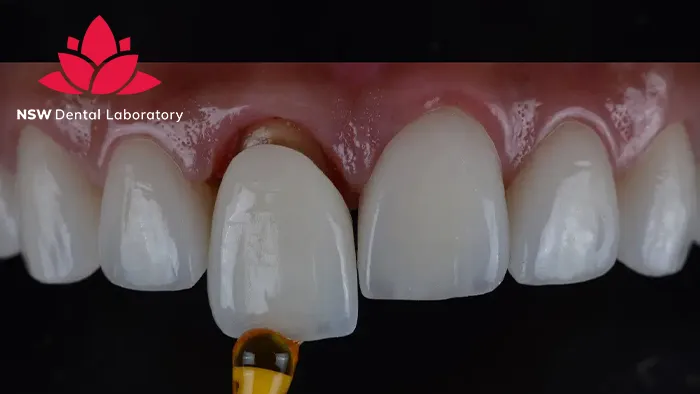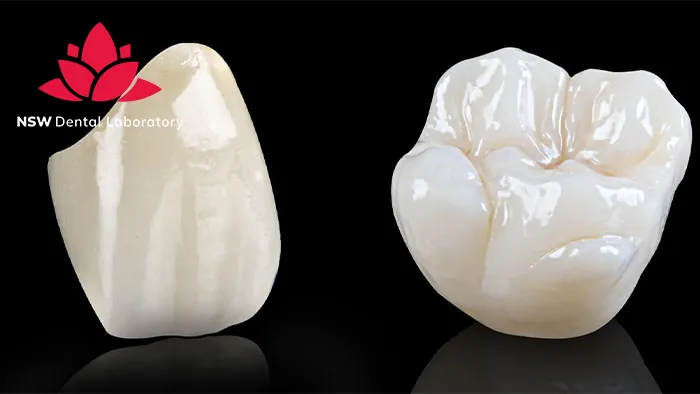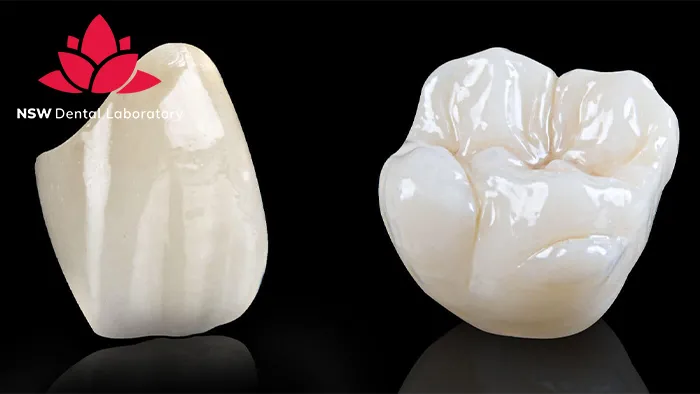Comprehensive Comparison Between Veneers And Crowns
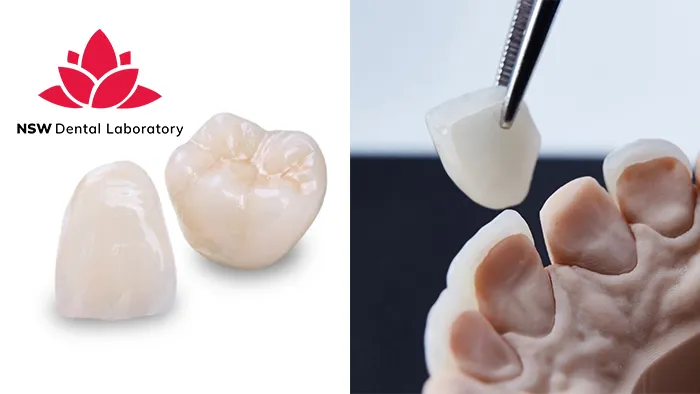
Veneers and Crowns are among the most popular cosmetic dental treatments today. Both options can protect, restore, and enhance the appearance and function of teeth. While Veneers and Crowns share similarities in design, procedure, and final aesthetics, they each have distinct characteristics that make them more suitable for specific cases.
This article will highlight the key differences, benefits, and indications for veneers and crowns, helping you make an informed decision as you embark on your journey to a more confident smile.
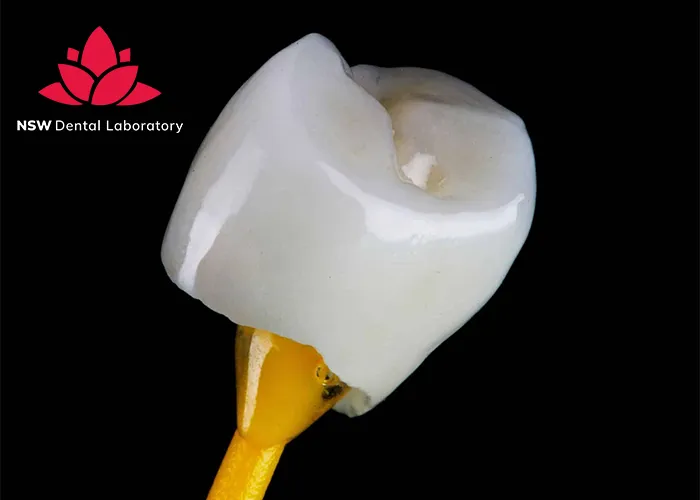
What Are Veneers and Crowns?
Veneers are thin, custom-made shells crafted from tooth-colored materials, designed to be bonded to the front surface of teeth to enhance their appearance. This is a minimally invasive cosmetic dental option that preserves most of the natural enamel. Veneers primarily serve aesthetic purposes and provide an ideal solution for addressing discoloration, wear, gaps, minor misalignments, or chipped teeth. They can be made from various materials, with porcelain and composite resin being the most common. Porcelain veneers are preferred due to their ability to mimic the natural translucency and appearance of real teeth. While veneers are a highly conservative option compared to other dental treatments, they are prone to chipping and cannot address severe dental issues.
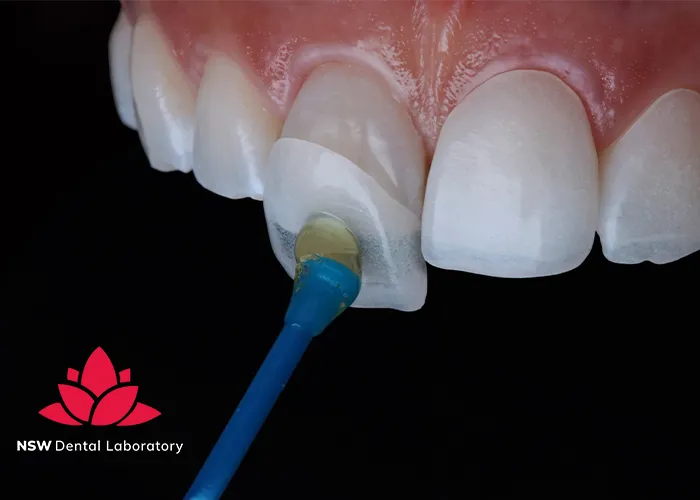
A Dental Crown is a tooth-shaped cap placed over the entire tooth to protect, cover, and strengthen teeth that are damaged, decayed, weakened, chipped, or worn down. Additionally, crowns provide support for dental bridges and implants. Similar to veneers, dental crowns can be made from various materials, including metal, zirconia, porcelain, or a combination of these. Unlike veneers, dental crowns require more natural tooth reduction but offer the advantage of restoring more severe dental issues effectively.
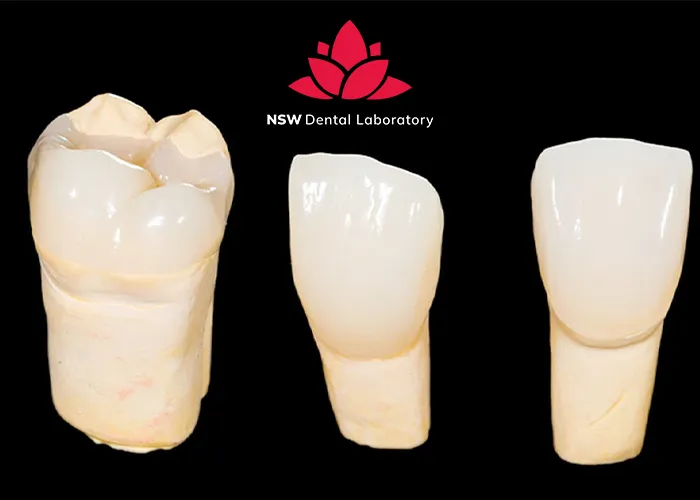
Benefits of Veneers and Crowns
Benefits of Veneers
- Helps conceal imperfections such as chipped, discolored, or uneven teeth, creating a bright, harmonious, and natural-looking smile.
- Maximally preserves natural teeth by requiring only 0.5mm of enamel reduction compared to dental crowns, allowing most of the natural tooth structure to remain intact.
- A quick and minimally invasive procedure, typically requiring only 1-2 appointments without the need for surgery or extended recovery time.
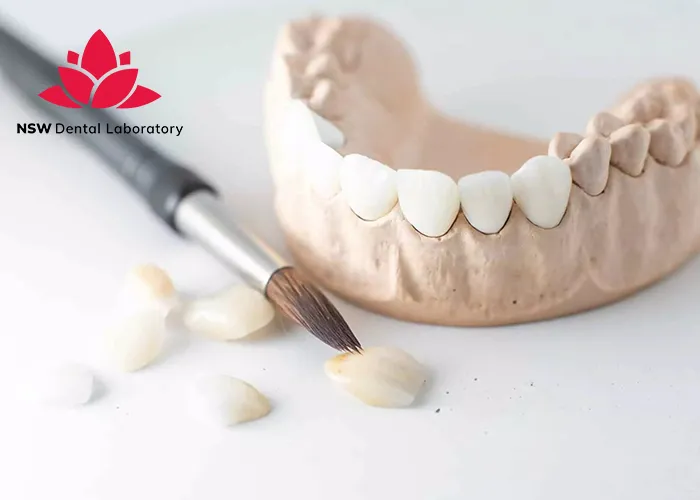
Benefits of Dental Crown
- Protects and restores severely damaged teeth, preventing further deterioration and reducing the risk of tooth extraction.
- Not only enhances aesthetics, but it also strengthens the tooth and restores chewing function, making it suitable for both front and back teeth.
- Supports dental bridge treatment as well as dental implant restoration.
- Offers superior strength and durability compared to veneers, lasting 15-20 years with proper care.
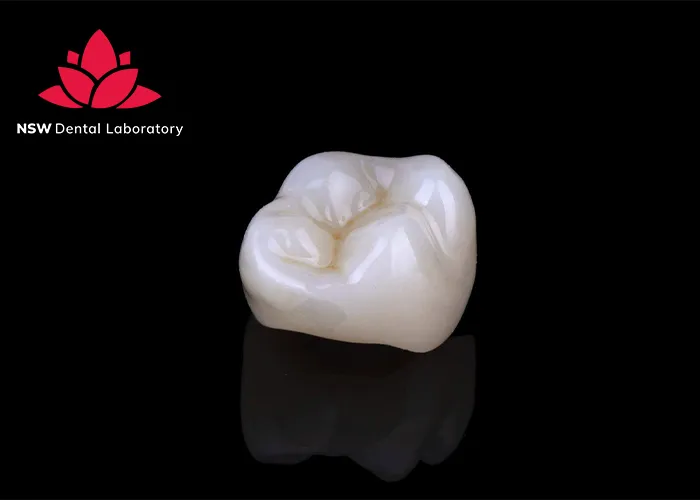
Difference Between Veneers and Crowns
-
Covered Area
Dental veneers are limited to covering the external face of the tooth to improve its appearance. Dental Crowns, on the other hand, must completely cover the remaining real tooth or the implant to ensure that there is no leakage. Only in this way will it also have the necessary adjustment to carry out the biting function and support occlusal loads.
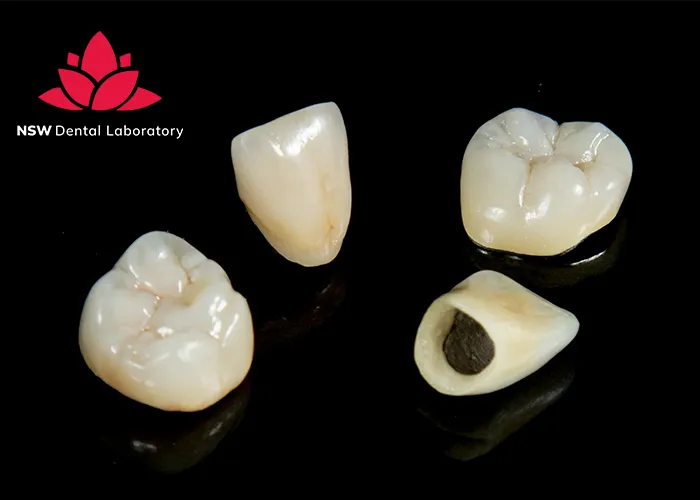
-
Preserve Natural Teeth
Tooth preparation is necessary before placing Veneers and Crowns. For veneers, minimal enamel reduction is required—typically around 0.5mm from the front surface of the tooth. In some cases, ultra-thin veneers may require little to no tooth reduction. In contrast, dental crowns require more extensive tooth reduction, depending on the extent of damage and the amount of tooth structure that needs to be removed for proper restoration.
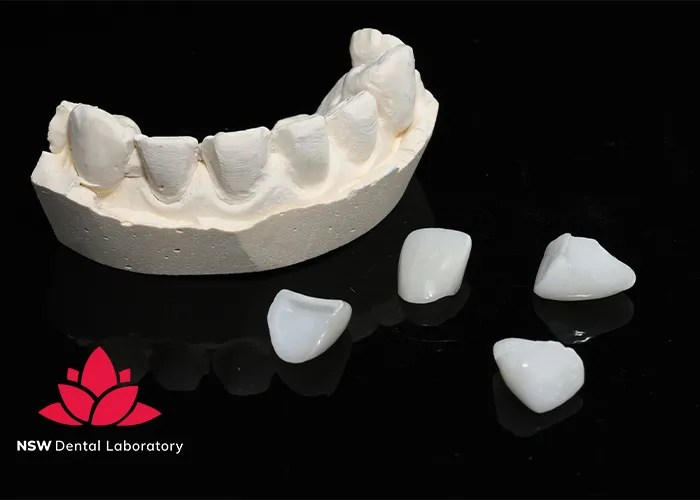
-
Purpose of Use
Veneers are used primarily for cosmetic enhancement. They are ideal for patients looking to improve the appearance of their teeth by correcting issues such as chipping or adjusting the shape, size, and color of a tooth.
Dental Crowns, on the other hand, serve both functional and restorative purposes. They are recommended for teeth that are severely damaged, broken, or missing and require structural reinforcement or replacement. In the case of tooth loss, crowns are also used as the final restoration after dental implant surgery.
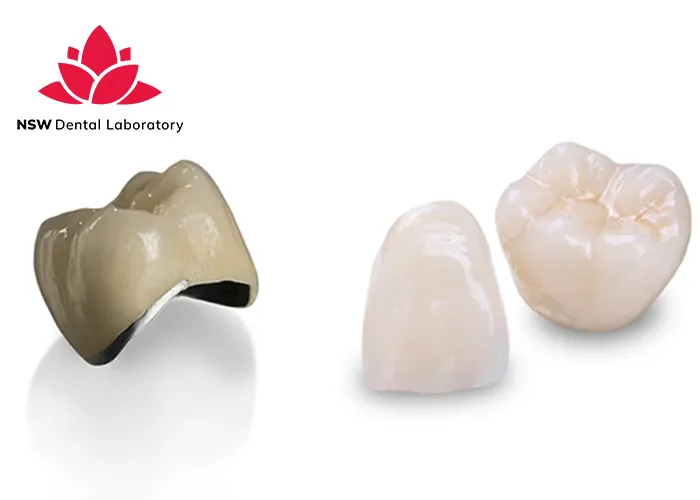
-
Suitable Candidates
Veneers are an ideal option for individuals with severely discolored teeth, mild spacing issues, or irregularly shaped teeth that are otherwise healthy and structurally sound, usually front-facing teeth.
Dental crowns, on the other hand, are suitable for teeth with extensive decay, cracks, chips, and severe enamel erosion, or those that have undergone root canal treatment or require restoration over a dental implant, usually for molars and premolars.
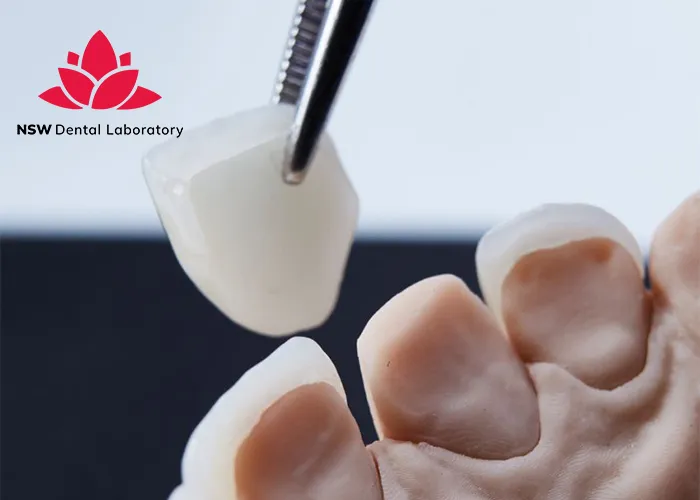
-
Materials
Veneers are primarily made from porcelain and composite resin, as they do not require excessive strength.
Dental crowns, on the other hand, are available in a wider range of materials, including porcelain, zirconia, metal, or a combination such as porcelain-fused-to-metal (PFM).
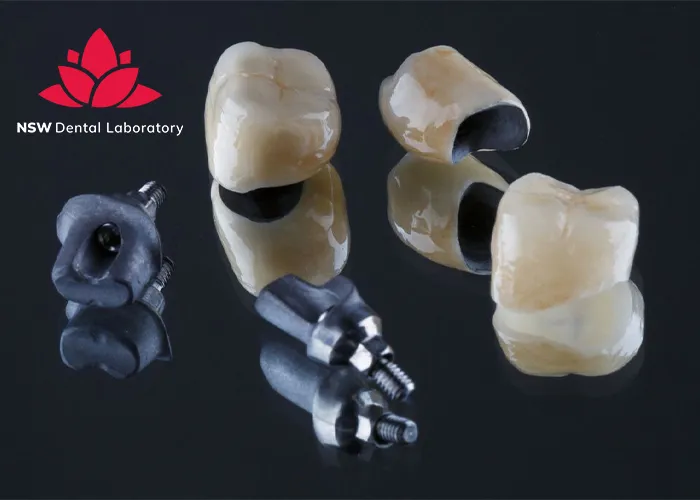
-
Cost and Average Lifespan
Veneers are generally more affordable than dental crowns but have a shorter lifespan, typically lasting between 10-15 years.
Dental crowns, while more expensive due to the complexity of materials and fabrication process, offer greater durability, with a lifespan of 15-20 years when properly maintained.
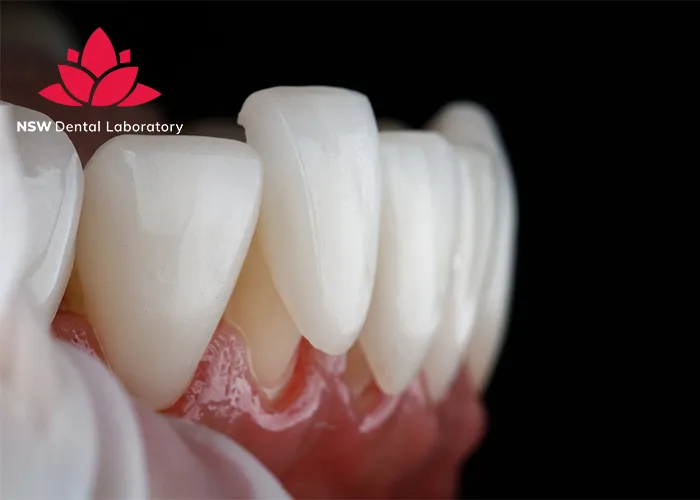
Veneers and Crowns: Which One Is Right For You?
Both veneers and crowns are effective solutions for achieving a perfect smile. While both procedures involve placing a restoration over an existing tooth, each has its advantages and considerations. The right choice for you depends on the condition of your teeth, their location, and your specific goals. If your teeth are severely damaged, a dental crown is a versatile option that restores both function and aesthetics, offering durability and strength. However, it requires more tooth preparation and may not provide the same level of aesthetics as veneers.
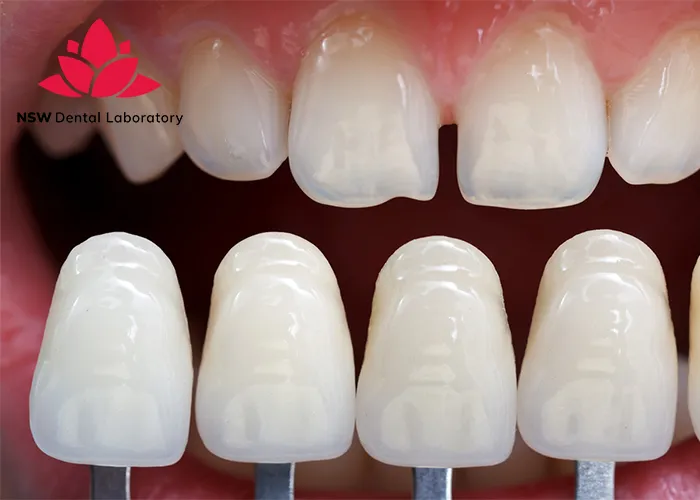
On the other hand, veneers are an excellent choice for enhancing the appearance of your smile or addressing minor dental imperfections. They offer a minimally invasive approach that preserves more of your natural tooth structure. However, they may not be suitable for teeth with significant damage.
In summary, to make the right decision, it is essential to consult with your dentist. They will assess your oral health, discuss your goals, and recommend the most suitable option based on your specific case. Consider factors such as durability, aesthetics, and cost when making your decision. Regardless of whether you need veneers or dental crowns, NSW Dental Lab has you covered. Our veneers and crowns are digitally fabricated using advanced technology to ensure high-quality restorations at an affordable price.
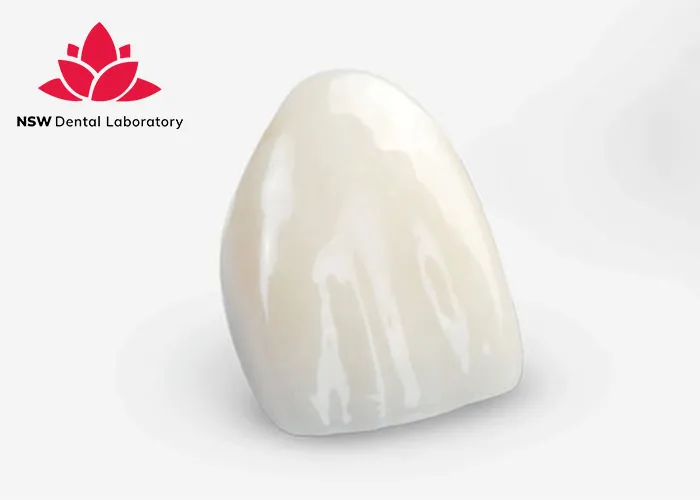
If you have any questions regarding veneers and crowns or other dental restorations, please feel free to contact our friendly team of dental technicians for assistance.

